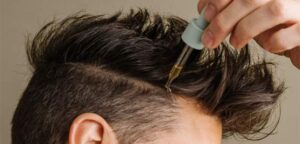Possible side effects of hair transplantation and how to deal with them
The problem of baldness and hair loss is a common health problem for both sexes, so hair transplantation is one of the most popular plastic surgeries. Possible side effects of hair transplant.
Possible complications resulting from hair transplantation
Complications resulting from hair transplantation occur in any patient, but the incidence of these complications increases when the doctor does not have enough experience in performing hair transplantation, and among these complications:
- An allergic reaction to the substance used in the anesthesia process.
- Feeling of pain at the place of implantation.
- The occurrence of infection and bleeding.
- Scarring in the surgical area.
- A sense of itching in the transplanted area.
- Numbness in the scalp.
- The failure of hair transplantation and its loss, and the need to perform the operation again
- Injury to the nerves, which leads to loss of sensation in some areas.
Prepare to avoid the possible side effects of hair transplantation
Although the surgical intervention in the case of using the DHI technique for hair transplantation is a very simple intervention, as the surgical scalpel is not intervened at all, the necessary precautions must be taken to prevent any emergency complications and until you get the desired result, you must follow the following :
- Stop smoking for a period of not less than two weeks before the operation, given that smoking causes a lack of oxygen in the blood and a lack of tissue nutrition.
- Drink ample amounts of water and fluids.
- Stop using any of the medications that cause blood thinners.
For your safety and in order for the doctor to avoid legal accountability, you will have to do the following tests before the scheduled date of the operation:
- A complete blood analysis that includes the number of red and white cells and the status of each of them, as well as the number of platelets and clotting factors.
- liver and kidney functions and blood gases.
- The level of sugar in the blood.
- Analysis of hepatic virus indices.

Technical improvements in hair transplantation and their impact on side effects
The current gold standard for hair transplants is called Follicular Unit Extraction.” “FUE is an advanced surgical technique for hair restoration. It is less invasive than traditional hair transplants. This surgical solution does not leave a scar and does not require any stitches. Using the FUE technique, one hair follicle is extracted at a time from the donor area, usually the back of the head, where hair loss does not otherwise occur, and then implanted in the bald or balding areas. Lightness.

The importance of medical expertise to avoid any side effects after hair transplantation
The experience of the plastic surgeon plays an important role in the success of hair transplantation, so the patient must choose a surgeon with experience in the field of hair transplantation, in order to avoid any complications after the surgery, while obtaining the best possible result for the patient.
Important tips for dealing with possible side effects of hair transplantation

After performing a hair transplant, it is preferable for the patient to adhere to these tips, in order to speed up the healing process and get the best results:
- Sleep in an upright position.
- Not washing the scalp immediately, as it must wait 48 hours after the operation.
- Apply pressure to the bleeding area with a clean, damp cloth or gauze for 5 to 10 minutes.
- Avoid strenuous physical activities in the first week of the recovery period.
- Keeping hair long to hide visible follicles.
- Follow a healthy diet, where it is advised to avoid spicy foods and alcohol, because they dilute the blood and thus increase the chance of bleeding.
- Commitment to the doctor’s instructions for the medicines prescribed by him.
This content has been approved by Zein Clinic doctors
To contact the doctor and provide a free consultation, click here:
Did you like our theme? You can share it with your friends now!
Read more:
A comparison between hair transplantation and other treatments for hair loss
The reasons for the failure of hair transplantation and the most important tips
The most prominent questions in hair transplantation
PRP hair plasma its benefits and harms
Sources: NHS


 واتساب
واتساب